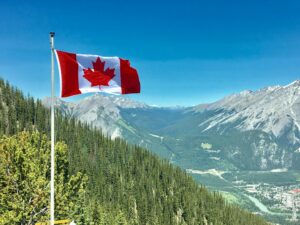
Moving to Canada for my Master’s in Sociology was one of the most transformative experiences of my life. Coming from South Asia, I had an idea of what to expect, but no amount of research could have fully prepared me for the real-life challenges and learning moments that lay ahead.
Adjusting to a new culture, education system, and social environment was not easy at first. I often found myself feeling lost in social situations, struggling to understand different perspectives, and even hesitating to interact freely with professors and peers. However, with time, patience, and a willingness to learn, I developed cultural competence—a skill that has shaped not only my academic journey but also my personal and professional life.
The Initial Culture Shock
Like many international students, I experienced culture shock the moment I stepped foot in Canada. Everything was different—the food, the way people communicated, the classroom environment, and even the approach to learning. One of my biggest challenges was adapting to the openness of Canadian society, where discussions about personal beliefs, politics, and social issues were encouraged in classrooms and among friends.
In my home country, education often followed a more structured, hierarchical system where students rarely questioned professors. However, in Canada, I found myself in an environment where critical thinking and debate were highly valued. Initially, I hesitated to speak up in class, fearing that my opinions might not be valid or that I might say something inappropriate. But I quickly realized that my diverse background and experiences actually enriched classroom discussions. Over time, I learned to express my thoughts confidently and engage in meaningful conversations with both professors and peers.
Learning, Unlearning, and Relearning Culture
One of the most valuable lessons I learned during my time in Canada was that cultural competence isn’t just about understanding a new culture—it’s about learning, unlearning, and relearning.
As I interacted with students from all over the world, I was exposed to different traditions, values, and perspectives. It was fascinating to learn about their ways of life, their festivals, and their beliefs, but it also made me reflect on my own cultural background. Some of the things I had always taken for granted were questioned, and I found myself reevaluating certain societal norms and personal biases that I had unknowingly carried with me.
For instance, I met students who came from countries where gender roles were more fluid than what I had grown up with. Their experiences challenged my understanding of equality and made me more aware of the unconscious biases I held. Similarly, learning about Indigenous cultures in Canada gave me a new appreciation for the histories and struggles of different communities, something I had never deeply considered before.
Cultural competence is not just about accepting differences; it’s about being open to change. By unlearning stereotypes and embracing new perspectives, I became more adaptable, understanding, and respectful of diverse viewpoints.
The Role of Soft Skills in Cultural Competence
Developing cultural competence also helped me build essential soft skills that have played a significant role in shaping my career. Some of the key skills I developed include:
- Communication – Learning how to communicate effectively with people from diverse backgrounds was a game changer. Whether it was understanding different accents, adapting to new conversation styles, or learning how to express my ideas in a culturally appropriate way, my communication skills improved drastically.
- Empathy – Living and studying with people from different parts of the world made me more empathetic. I started seeing things from multiple perspectives, which helped me develop better relationships, both personally and professionally.
- Adaptability – Moving to a new country required me to step out of my comfort zone repeatedly. From trying new foods to adjusting to new ways of thinking, I became more flexible and open to change. This adaptability later helped me in the workplace, where I had to quickly adjust to different professional environments.
- Problem-Solving – Cultural misunderstandings happen, and instead of feeling frustrated, I learned to navigate them with patience and understanding. Whether it was resolving a miscommunication with a professor or figuring out social norms in a workplace setting, my problem-solving skills improved significantly.
- Networking and Relationship-Building – Making friends in a new country is not always easy, but being open to different cultures helped me connect with people from various backgrounds. These relationships not only enriched my personal life but also expanded my professional network.
The Impact of Cultural Competence on My Career
As I transitioned from being a student to working in Canada, I realized just how valuable cultural competence was in the workplace. In a multicultural country like Canada, employers highly value individuals who can work effectively with people from diverse backgrounds. My ability to communicate across cultures, adapt to new environments, and approach challenges with an open mind made me a stronger candidate in job interviews and helped me excel in professional settings.
Beyond career benefits, cultural competence has also made me a better person. It has given me a deeper appreciation for diversity, an ability to embrace change, and a mindset that is always open to growth.
Advice to Future International Students
If you’re an international student preparing to study abroad, my biggest advice would be to stay open-minded and embrace every experience as a learning opportunity. Don’t be afraid to step out of your comfort zone, ask questions, and make connections with people from different cultures.
Cultural competence is not something you develop overnight, but with time and effort, it will become one of your greatest strengths. It will not only help you succeed academically and professionally but will also enrich your personal life in ways you never imagined.
Moving to Canada and completing my graduate degree was more than just an academic achievement—it was a journey of self-discovery, growth, and transformation. And for that, I am forever grateful.